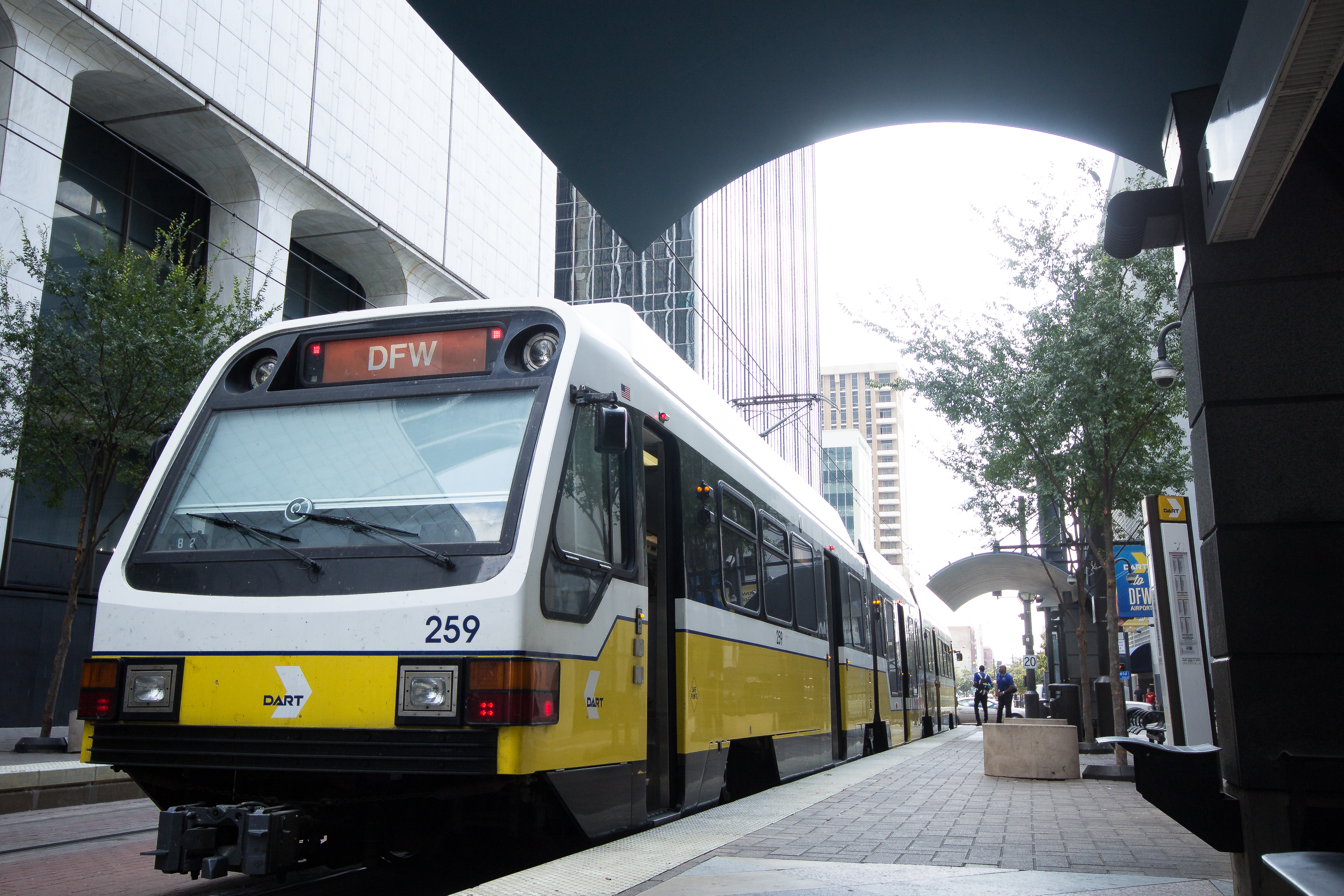About a month ago, a group called 1,000 Texans For Transit held an informational event at the J. Erik Jonsson Library in downtown Dallas to introduce a new initiative that is pushing for a different approach to funding public transit in Texas. On Patreon, the group’s executive director, Jay Blayzek Crowley, lays out the argument for introducing a Vehicle Miles Traveled fee as a way to generate new funds for transit in Texas. The fee is an alternative to a straight gasoline tax, and it would generate tax revenue by charging drivers for the distance they drive, as opposed to the amount of gasoline they use.
Not surprisingly, in spread-out Texas this funding scheme would generate a load of money. Crowly estimates that Austin alone would generate some $200 million a year. And if this money could be linked to new multimodal transportation projects, Crowley argues, Texas may finally catch up to other metro areas with regard to public transit infrastructure investment.
Texas metro region’s are tremendously hampered in their ability to compete with the US economic center and globally with our total lack of state transit funding, and limits on local funding, including leaving significant matching federal transit funds on the table. Do we want our economies to continue competing with Detroit and Phoenix or New York, Seattle, DC, Boston?
In the article, Crowley breaks down public transit funding by metropolitan region to show that Texas’ metros do lag very far behind other U.S. cities. While traditionally car-based cities like Denver and Los Angeles have made huge strides in recent years to retrofit public transit systems into their auto-driven urban forms using local option funding, Texas cities still lag far behind in pure dollar investment in transit. As a result, not only are Texas cites not spending what competing U.S. cities are spending on transit, their lower spending means they are also not getting federal funds:
Establishing these new local and state transit funding mechanisms would also mean bringing more federal transit funding in the form of matching funds, instead of Texas continuing to leave this funding on the table. Doing all of these things could bring Texas metros on par with Los Angeles, Philadelphia, or Baltimore for transit funding per capita – all enviable transit metros with much higher ridership than any Texas metros, and reasonable models for setting goals for the next decade of Texas transit development.
Part of the problem is the Texas Legislature currently won’t allow regions to use local option funding for public transit. But a growing number of urban officials are pushing on the lege to give regions more leeway in taxing themselves to pay for transit. From the sound of it, Houston, San Antonio, and Austin officials are taking the lead, and Dallas regional leaders would be wise to join them and mimic some of their efforts, such as the San Antonio mayor’s ConnectSA initiative or Austin mayor Steve Adler’s regional commission for transit.
The mileage tax represents one way to close that gap, though implementing it may still be a long way off. A Missouri congressman introduced the idea in the house transportation committee this year, but it faces opposition and even supporters don’t see it becoming a reality for at least a decade. Nonetheless, the 1,000 Texans for Transit folks will continue their statewide push.





